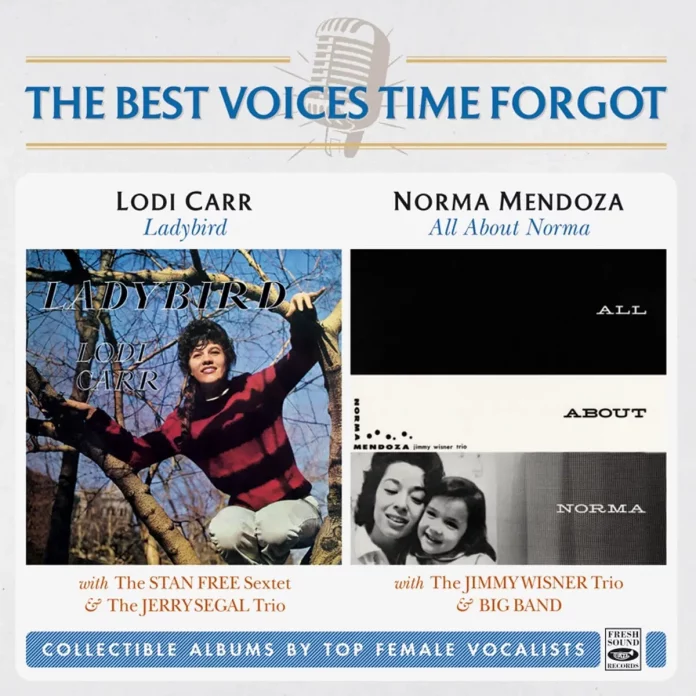Fresh Sound’s “The Best Voices That Time Forgot” series is a fine example of hype-free billing, the kind of billing disregarded by the often excitable types who write press releases these days. This pairing gives substance to this assertion in no negligible way, and, as with other pairings in this series, has the effect of rescuing neglected talents from undeserved obscurity.
Carr was born in Marquette, Michigan and her vocal art developed in Detroit when it was a hotbed of what was then known as modern jazz. That apprenticeship yielded dividends throughout this, her solitary album, and thanks to this reissue they can be enjoyed hopefully by an audience greater than the one that first picked up on it about six decades back. Her depth and range of emotion is summarised nicely by the opening pairing of The Masquerade Is Over, in which she pitches the pathos beautifully and with a snifter of uncontrived regret, and Tumble-In-Down, in which the sassiness is acutely well judged.
Lady Bird is light of mood, airy and froth-free, with the overall impression of the song underlined by short but succinct solos from pianist Stan Free and Don Elliott, who on this occasion forsakes his mellophone for vibraphone. Meanwhile, if depth of talent can be gauged by an ability to extract something fresh out of the overly familiar, then Carr has it in her reading of If I Should Lose You.
On a historical note, Carr worked at the Upstairs club in Philadelphia with Hank Mobley early in May 1986, which turned out to be one of his last gigs before he died at the end of the same month. By way of contrast she’s apparently still out there, somewhere.
Mendoza brings similar depth but a happily dissimilar voice to bear on material which ranges from originals from the pen of pianist Jimmy Wisner to When Sunny Gets Blue, out of which Mendoza gets a forlorn yet somehow uplifting quality which, as with Carr above, has the effect of extracting something fresh from well-worn material. The same goes, not a little surprisingly, for My Funny Valentine, from which Mendoza mines a range of emotional nuggets, all of them tempered to the point where depth of interpretation transcends every superficiality.
Our Love Is Here To Stay clocks in at just under two minutes, but every second is a working example of how to compact substance into brevity. The accompaniment is trenchant, yet Mendoza’s carefree approach isn’t at odds with it.
Discography
The Masquerade Is Over; Tumble-In-Down; When I Fall In Love; For You Just For You; My Ship; Lady Bird; I’m Lost; There’ll Never Be Another You; If I Should Lose You; Deed I Do; Blue Room; Sidney’s Soliloquy; Little Norma; Black Is The Colour; When Sunny Gets Blue; Our Love Is Here To Stay; Warm; Dreamy Eyes; I Don’t Know What Time It Was; Just In Time; And Then There Were None (Potato Chips); My Funny Valentine; If It’s Love (65.23)
Carr, Mendoza (v); Don Elliott (vib, mel); Stan Free, Jimmy Wisner (p) and others. New York City, 1960 and Reco-Art Studios, Philadelphia, January-February 1960.
Fresh Sound FSR V134
















